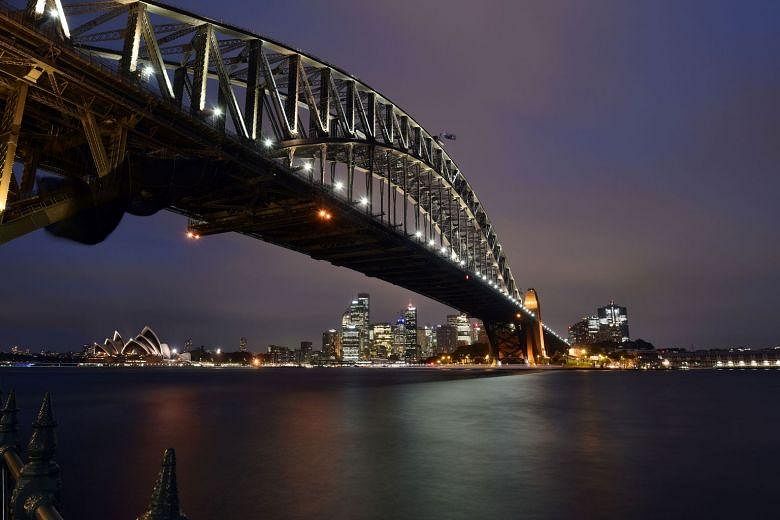An ambitious agreement set to strengthen trade and investment flows across the Pacific amid a climate of rising protectionism will go into effect at the end of next month.
Yesterday, Australia became the sixth country to ratify the Comprehensive and Progressive Agreement for Trans-Pacific Partnership (CPTPP), joining Singapore, Canada, Japan, Mexico and New Zealand. Canberra's ratification means the treaty, which will enter into force on Dec 30, has been ratified by a majority of members.
"Our ratification means we are guaranteeing maximum benefits for our farmers and businesses," Australian Prime Minister Scott Morrison and Trade Minister Simon Birmingham said in a statement, adding that the deal would see annual benefits of up to A$15.6 billion (S$15.3 billion) to the national economy by 2030.
Singapore's Trade and Industry Minister Chan Chun Sing noted the development will "strengthen trade flows among countries in the Asia-Pacific, facilitating a more seamless flow of goods, services, investment as well as e-commerce".
"We look forward to the entry into force of the CPTPP, which will send a strong signal of our collective commitment to trade liberalisation and a rules-based trading system," he said in a Facebook post.
The significance of the pact was echoed by Japan's Economy Minister Toshimitsu Motegi, who said: "As protectionist moves strengthen across the world, the importance of free and fair rules is growing more and more."
Vietnam is expected to ratify the deal this month. Brunei, Chile and Peru are expected to follow suit.
However, Malaysian Prime Minister Mahathir Mohamad said his government has not set a date to ratify the pact. "We are studying it very deeply to make sure it does not have a bad effect on our economy," he told reporters yesterday.
Countries will enjoy the benefits of the deal only when they ratify it.
The deal's imminent launchbrings to an end its troubled gestation, after United States President Donald Trump withdrew his country from the original Trans-Pacific Partnership (TPP) on his first day in office.
Led by Japan, the remaining 11 members spent a year reworking the deal and ended up suspending 22 out of the over 1,000 provisions.
The rebranded pact, also referred to as TPP-11, will do away with virtually all tariffs and other barriers to trading goods, and help shipments clear Customs more easily.
CPTPP countries accounted for $214 billion - a fifth - of Singapore's total goods trade last year. They make up a free trade area worth a combined $13.9 trillion.
The CPTPP's ratification by a majority of members may lend momentum towards a broad agreement on the much bigger 16-nation Regional Comprehensive Economic Partnership (RCEP) being negotiated by Asean and six of its key trading partners - Australia, China, India, Japan, New Zealand and South Korea.
RCEP talks have dragged on for five years as countries haggle over sticking points such as the movement of labour and treatment of services, but hopes are high for a broad agreement when their leaders meet at the annual Asean summit in Singapore in two weeks.
As for the CPTPP, ratifying countries will see tariff cuts on Dec 30, and another round on Jan 1, 2019.
Members also hope the deal will insulate them from a trade war.
"By eliminating many trade barriers between its members as early as December, the CPTPP will help mitigate some of the negative impact on those countries of escalating US-China trade tensions," said Mr Peter Mumford, an analyst at risk analysis firm Eurasia Group.
Interest, and membership, in the pact is also expected to grow. Colombia has applied, and South Korea is expected to raise its hand. Thailand is also expected to come under heavy pressure from Japan to join as manufacturers with operations there will be eager to keep supply chains within the membership zone, Mr Mumford said.
SEE TOP OF THE NEWS: CPTPP: A not-so-little gift for free trade that may keep on giving


